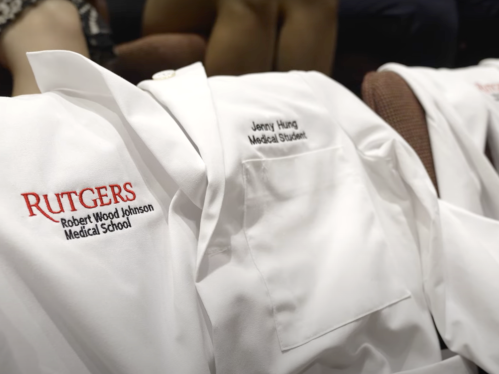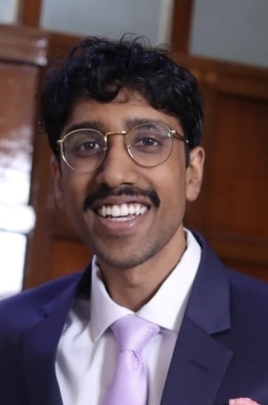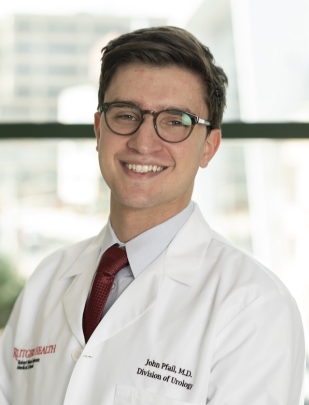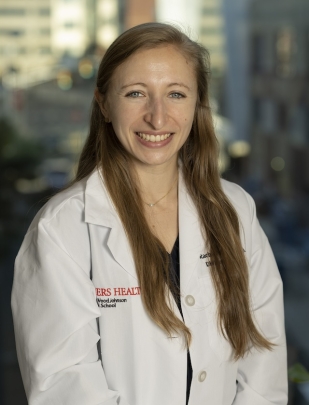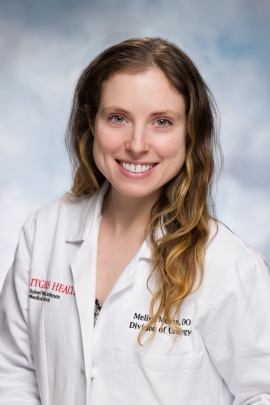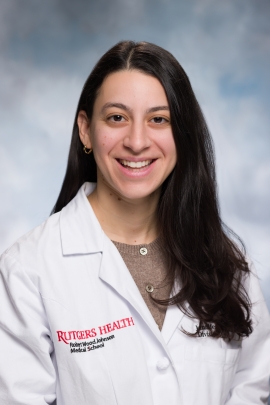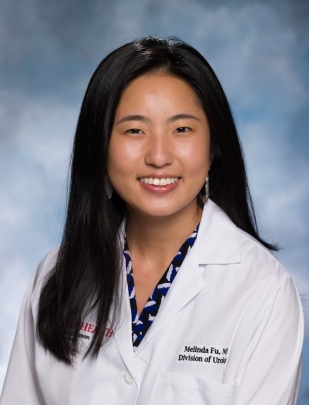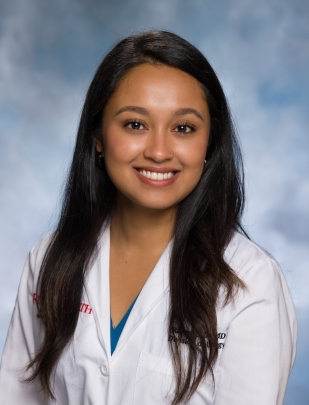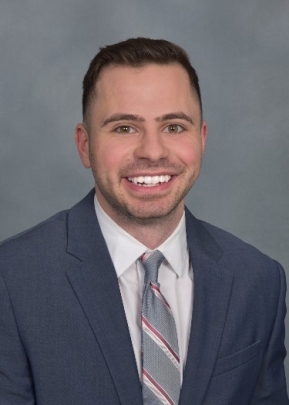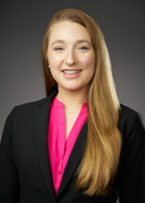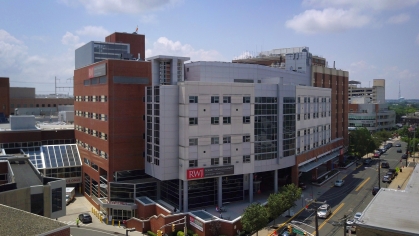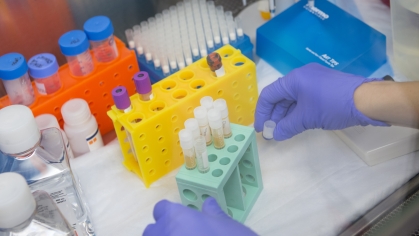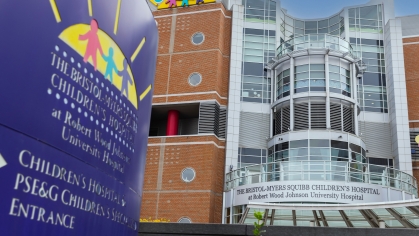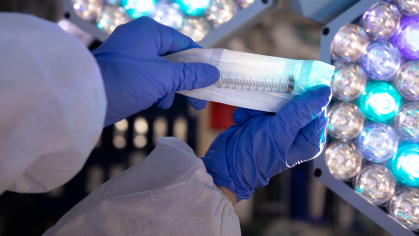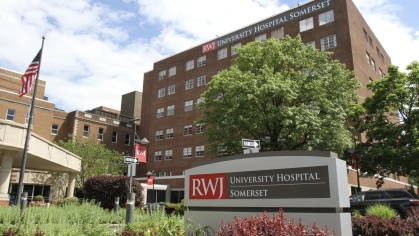Urology Residency
Overview of the Program
Our Residency Training Program in Urology at Robert Wood Johnson Medical School aims to provide residents with a wide breadth of experience managing medical and surgical diseases of the genitourinary tract as well as opportunities in pursuing basic and clinical research in all domains of urology.
We are a high volume, tertiary care center that specializes in complex oncologic and reconstructive surgery and in minimally-invasive, laparoscopic and robotic surgeries. We perform a high volume of robotic radical prostatectomies, radical cystectomies both open and robotic, with urinary tract reconstruction, radical and partial nephrectomies, both open and robotic, retroperitoneal lymph node dissections in the primary and post-chemotherapy settings, and percutaneous nephrolithotomies.
Our residents benefit from working closely with faculty at the Rutgers Cancer Institute of New Jersey, which is the only NCI-designated Comprehensive Cancer Center in the state and enjoy a 6 month protected resarch block to pursue basic and/or clinic research in their subspecialty interest that aligns with their career goals. We provide a graded increase in patient care responsibility, operative autonomy and team leadership. By providing two years of chief resident-level training (PGY-4 and PGY-5), our residents graduate with high surgical volume, excellent experience and confidence, and exceptional clinical and operative acumen.
We accept three residents per year into a five-year program. Our main goal is to provide a nurturing environment in which residents can acquire the surgical, medical, research, and decision making skills to become outstanding urologists.
By their chief year, our residents will have mastered the ACGME competencies (patient care, medical knowledge, practice-based learning and improvement, interpersonal and communication skills, professionalism, and systems-based practice) and have acquired the requisite leadership, surgical, and research skills to pursue either a career in academia or private practice.
________________________________________________
The Division of Urology provides education verification services for physicians who have completed our residency training program.
Cost: $100.00 per verification
Payment may be sent by check along with a signed release from the physician who is being verified.
Mail payment to:
Rutgers Robert Wood Johnson Medical School
Urology Residency Training Program
Attn: Theresa A. Couzo, C-TAGME
125 Paterson St., MEB 527
New Brunswick, NJ 08901
Clinical Training
-
The PGY-1 year is split between general surgery and urology. Each PGY-1 spends 6 months on urology and 6 months on general surgery services at RWJUH.
This year provides a well-rounded preliminary experience with exposure to surgical oncology, trauma, emergency general surgery, and the surgical intensive care unit. The 6 months of urology prepares each individual well for the start of Urology 1 year.
Residents spend the full year at Robert Wood Johnson University Hospital, and rotate three months at a time on urology or various general surgery services.
-
The PGY-2 urology junior resident spends a total of 6 months at RWJUH and 6 months at RWJUH-Somerset. The adult urology rotation at RWJUH includes heavy focus on diagnosis, preoperative evaluation, care, and medical/surgical management of a wide breadth of urologic conditions. Operative experience mostly includes cystoscopic and ureteroscopic cases, prostate biopsy, and other minor surgical procedures involving inguinal or scrotal region.
At Somerset, a PGY-2 and PGY-4 are paired to run a service encompassing 7 private urologists. Good exposure is provided with both simple and complex urologic procedures including robotic surgery.
-
The PGY-3 Urology residents spends total of 6 months on the Princeton service as well as 6 months on research elective.
The Princeton 6 month rotation, provides the resident exposure to a high volume private practice experience as a Senior Resident. The resident participates in the outpatient and inpatient management of all patients with a concentration on medical and surgical management of BPH, urinary tract calculi, and benign and malignant neoplasms of the genitourinary tract.
The PGY-3 spends a total of 6 months dedicated to basic or clinical science research. The resident selects research projects with his/her mentor that based upon the interest of the resident. The resident is encouraged to present the research at a national meeting and submit the completed work for publication.
-
The PGY 4 residents spend 6 months as "Chief" Resident at Somerset and 6 months in Pediatric Urology at The Bristol-Myers Squibb Children's Hospital.
During the six month rotation, the resident becomes comfortable managing common and complex pediatric problems including hypospadias, vesicoureteral reflux and neurogenic bladder dysfunction. Two pediatric urology faculty in addition to private pediatric urologists provide a busy and extensive operative experience. During the PGY-4 year the resident is also exposed to more complex adult endoscopic cases and begins to perform minimally-invasive, robotic and laparoscopic cases.
The PGY-4 also spends 6 months as "Chief" at RWJUH-Somerset. This rotation is heavily weighted towards minimally invasive and robotic surgery and allows the resident to gain confidence through independent learning and skills development. The Somerset operative experience includes a large volume of laparoscopic and robotic cases under the supervision of our fellowship trained robotic clinical faculty. As chief, the resident is responsible for teaching and guiding the PGY-2 through surgical cases and inpatient consultations.
PGY-4 year prepares the resident for his or her duties as Chief Resident.
-
The Chief Year is spent on the two adult Urology services at Robert Wood Johnson University Hospital.
Each service is a high volume operative service with a slightly different focus. The minimally invasive service allows the chief to refine his or her laproscopic and robotic skills. Each chief will spend a large amount of time in the operating room perfecting robotic partial and radical nephrectomy, robotic prostatectomy, robotic cystectomy, pyeloplasty, PCNL, and advanced minimally invasive techniques for the treatment of BPH. Oncology service also includes excellent exposure to robotic and laparoscopic surgery. In addition, this service affords greater exposure to open radical cystectomy, partial nephrectomy, radical nephrectomy (including IVC thrombectomy), as well as RPLND.
Robert Wood Johnson University Hospital is a busy tertiary referral center for complex urologic disease. The chief residents supervise the care in the weekly outpatient urology clinic and becomes a mentor for the junior resident team. Chief residents are expected to participate in the workup and management of all patients on the service, coordinate the activities of the junior residents and medical students, and serve as the administrative executives for the day to day operations of the residency program.
-
- Indication's Conference- Every Wednesday at 8 am CINJ auditorium B (no 1st Wednesday of the month)
- Morbidity and Mortality- M&M - 1st Wednesday of the month- 8 am CINJ auditorium B
- Grand Rounds - Wednesday 7am (no GR 1st Wednesday -M&M at 8am) CINJ auditorium B
- Resident Education - Every Wednesday at 9am
Resident led lectures, AUA updates, AUA videos, guideline review, in-service preparation
- Genitourinary Tumor Board – Every other Thursday 8am CINJ auditorium A/B
Multidisciplinary discussion of genitourinary malignancies attended by medical oncology, radiation oncology, pathology, radiology, urology - Journal Club – 8am 2nd Wednesday of the month CINJ auditorium B
Discussion of the months Journal of Urology, Urology, and relevant articles that appear in journals of general medical interest (NEJM, Nature Medicine, J. of Clinical Oncology, etc.) 2 times per year at each outside rotation site
-
Fellowships
Our program provides an excellent academic and clinical experience. In the past, our residents have been very competitive in attaining nationally and internationally known fellowships as well as private practice jobs of their choice.
Academic Positions:
- Former Senior Associate Dean of Clinical Affairs and Chief, Division of Urology, Rutgers Robert Wood Johnson Medical School, Section Chief Pediatric Urology, Robert Wood Johnson Barnabas Health
- Chairman, Department of Urology, University of Louisville, Louisville, KY
- Vice Chairman, Department of Urology, University of California at Los Angeles, Los Angeles, CA
- Vice Chairman, Department of Urology, University of Texas at San Antonio, San Antonio, TX
- Senior Attending Urologic Oncology, Urologic Oncology Branch, NIH, Bethesda, MD
Recent Fellowships:
- Genitourinary Reconstructive Surgery, UT Southwestern Medical Center (2026)
- Pediatric Urology, Boston Children's - Harvard University (2026)
- Reconstructive Urologic Surgery, SUNY Upstate (2025)
- Urologic Oncology, Fox Chase (2025)
- Endourology, University of Southern California (2024)
- Endourology, Hackensack University (2024)
- Urologic Oncology, University of Michigan (2023)
- GURS, UCSF (2023)
- Female Pelvic Medicine and Reconstructive Surgery, Long Island Medical Center, Smith Institute (2022)
- Urologic Oncology, Memorial Sloan Kettering Cancer Center (2022)
- Gender Affirmation, Cedars-Sinai (2021)
- Advanced Robotics and Laparoscopy, USC Institute of Urology (2020)
- Male Infertility, Cleveland Clinic (2019)
- Reconstructive Urology, Washington University in St. Louis (2019)
- Pediatric Urology, Johns Hopkins University (2018)
- Advanced Robotics and Laparoscopy, USC Institute of Urology (2018)
- Endourology Society Minimally Invasive Urology Fellowship, Washington University in St. Louis (2017)
- Urologic Oncology Fellowship, University of Michigan (2017)
- Urologic Oncology Fellowship, UCLA (2016)
- Advanced Robotics and Laparoscopy, USC Institute of Urology (2016)
- Urologic Oncology Fellowship, UCLA (2015)
- Urologic Oncology Fellowship, City of Hope (2015)
- Minimally Invasive and Voiding Dysfunction, Columbia New York Presbyterian, New York, NY (2014)
- Endourology and Minimally Invasive Surgery, Northshore Long Island Jewish Medical Center, NY (2014)
- NIH, Urologic Oncology, Bethesda Maryland (2013)
- Robotic Surgery Fellowship, Maimonides Hospital, New York, NY (2013)
- Female Urology and Voiding Dysfunction, MUSC, Charleston, SC (2012)
- Minimally Invasive and Voiding Dysfunction, Columbia New York Presbyterian, New York, NY (2011)
- Robotic Surgery, Montsouris, University Pierre Et Marie Curie, Paris, France (2010)
- Pediatric Urology, UT Southwestern Medical Center, Dallas, Texas
- Robotic Surgery, Montsouris, University Pierre Et Marie Curie, Paris, France
Private Practice
- New Brunswick, New Jersey
- Chesapeake Urology, Maryland
- Manhasset, New York
- Dover, New Hampshire
- Freehold Twp, New Jersey
- Albuquerque, New Mexico
- Venice, Florida
- Marlton, New Jersey
- Saint Joseph, Missouri
- Trenton, New Jersey
Research
Residents have six months of dedicated research time during their PGY3 year to pursue interests that align with their career goals. Opportunities include basic science research, health services research, and clinical trials and residents are offered full access to resources within Rutgers University, Robert Wood Johnson Medical School, Rutgers School of Public Health, Rutgers Cancer Institute of New Jersey, among others. Though our residents are offered six months of protected research time, the majority are productive thoroughout their residency and gain experience in first authorship at major urologic and scientific journals and as lead speakers at national meetings, such as the AUA, GU ASCO, ASCO, SWIU, and SUO.
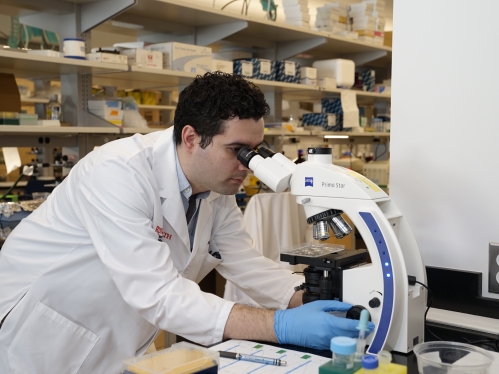
Subinternship Information
Rutgers welcomes visiting students for an advanced clerkship in Urology. Under the guidance of Dr. Haris Ahmed, our faculty clerkship director in urology, students will experience the entire breadth of specialties within urology: oncology, pediatric urology, stone disease, erectile dysfunction, pelvic reconstruction and voiding dysfunction.
For questions and additional information, contact Haris Ahmed, MD, Clerkship Director or Theresa Couzo, Program Supervisor.

Contact Us
Thomas L. Jang, MD, MPH, FACS
Program Director (Urology Residency Training Program)
Chief of Urologic Oncology
Professor, Department of Surgery
Director, Program in Testicular Cancer & Retroperitoneal Surgery
Rutgers Cancer Institute of New Jersey
195 Little Albany Street, Suite 4560
New Brunswick, NJ 08903-2681
732-235-9596
jangtl@cinj.rutgers.edu
Theresa A. Couzo, C-TAGME
Program Supervisor
732.235.6813
couzota@rwjms.rutgers.edu
Twitter: @rwjurology
